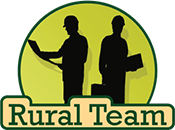Source: www.connectmeetings.com/
Typically, these sports commissions work to attract, market and often manage sports-related events, boosting tourism dollars in the process. There are currently about 130 sports commissions in the United States, a number that has risen steadily over the years.
Determine why you’re launching one
Is it to host more events? Is it to better market your city? “You need to have a clear understanding of your vision and mission rather than just a desire to put your name out there,” says Monica Paul, executive director of the Dallas Sports Commission.
Decide how the commission will be structured
Don Schumacher, CSEE, executive director of the National Association of Sports Commissions, says the current trend is to launch a commission as part of a destination marketing organization, like a CVB, which usually comes with a built-in support system.
Schumacher says each year, on average, two to three CVBs launch a new sports commission. “CVBs have realized that having a sports commission makes them more competitive,” he explains. “Because they’re the ones providing the funding for the organization, it makes sense for the commission to be a part of the bureau.”
Tammy Dunn, sports development director of the Snohomish County Sports Commission in Lynnwood, Washington, started working part time as sports marketing director for the Snohomish County Tourism Bureau in 2005. Over time, she grew the sports department and eventually helped launch Snohomish County Sports Commission, which now has three staff members. Paul had a similar experience. She first joined the local CVB in 2008 and for years helped recruit sporting events, meetings and conventions. Eventually the CVB realized sports tourism was a real benefit. “We formed the sports commission in 2014 and added two staff members to create more brand awareness and elevate Dallas as a true sports destination,” says Paul.
Figure out your funding
Before you can move forward, you have to identify realistic, sustainable sources that will pay for necessities like staff, trade shows, marketing and other operating expenses.
John Gibbons, executive director of the Rhode Island Sports Commission, says starting an independent sports commission has become increasingly difficult. “Stand-alone sports commissions typically raise their own money through corporate donations, or they may run their own events,” he says. “It’s a real struggle to operate that way because if your events or sponsorships start to drop, then you don’t have a steady revenue stream. It’s like a roller coaster ride.”
The Rhode Island Sports Commission is funded primarily through the Providence Warwick CVB, though tourism tax dollars. Gibbons says when they were first getting the commission off the ground in 2010, they also received state grants of about $70,000 for the first two years. This money went toward bolstering the commission’s brand with new logos, a trade show booth, photography and sponsorships with local sports teams. “We went above and beyond in our marketing and advertising,” says Gibbons.
Foster community support
Rob Higgins, executive director of the Tampa Bay Sports Commission, focused on fostering local relationships when he joined in 2004. “Through that effort we’ve been able to grow exponentially over the past 12 years,” he says. “Between the facilities, hotels and local municipalities, everyone has to be on the same page.”
Paul says that while her commission shares a similar mission and vision with the Dallas CVB, it still has freedom to focus on special community initiatives. “Getting your community leaders’ support is a top step in starting a sports commission,” she says.
The Sports Retail Group

The Sports Retail Group (www.SportsRetailGroup.com) was created to meet the sales and marketing needs for start-up, emerging and established brands (sports nutrition, sporting goods) in relation to the following formats:
- Sports Medicine and Training Programs
- Colleges and Universities
- Professional Sports
- Hospitals
- Offices and Factories
- Sports Training Centers
- General Sports Retailers
- Running Stores
- Bike Shops
- Ski Shops
- Golf Shops
- Pool Supply Stores
- Soccer Shops
- Outdoor Retailers
- Surf Shops
- Sports Apparel
- Team Sports
- Karate Studios
- Gyms
- Dive Shops
- Sports Nutrition Stores
- Yoga Studios
- Boxing Studios
- Skate Shops
- Hockey Stores
- Bowling Alleys
- Skating Rinks
The Team Has Office Locations in Las Vegas, NV; Reno, NV; Dallas, TX and Raleigh, NC All Available to Discuss New Projects With Prospective Clients.


